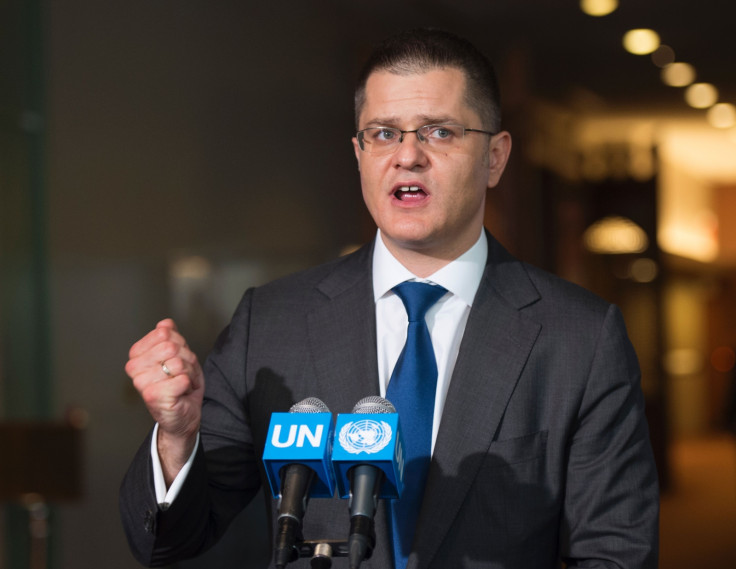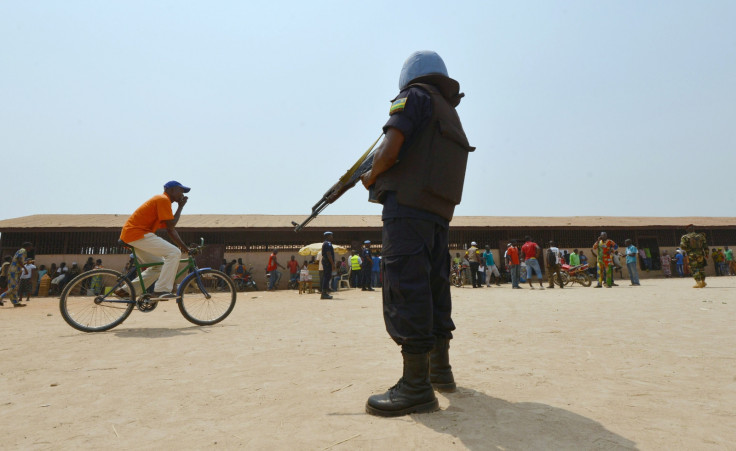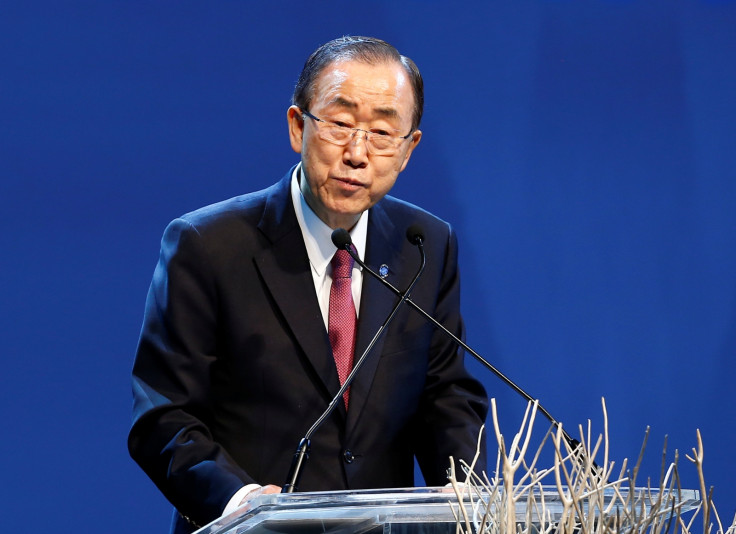UN Secretary-General 2016: Top candidate Vuk Jeremić says UN needs to regain trust

For a frontrunner for the post of the world's top diplomat, Vuk Jeremić is rather candid about how he thinks the United Nations should change. "If you look at the UN's speeches and compare it to an average Ted Talk, there's quite a difference. I would like more Ted Talk and less UN diplomatic niceties," he told IBTimes UK.
It is a tricky balance to strike because after incumbent Ban Ki-moon steps down, his replacement taking over at the beginning of 2017 will already have to tackle the criticism head-on – and public perception among many – that the UN is more talk than action.
Jeremić says: "One of the important reforms is to start calling a spade a spade, to do a little bit more straight talking. How are you going to return the credibility and the trust of the world if you are not prepared to talk openly about the world's problems, including the UN's problems?"
And those are not just problems with bureaucracy. Dealing with climate change, intractable differences in an imploding Syria, a belligerent North Korea are just some of the issues that will swell the in-tray of the ninth Secretary-General.
In addition, the UN brand has been tarnished in parts of the world such as Africa, especially after reports of peacekeepers allegedly abusing women and children in the Central African Republic. The head of an advocacy group told the IBTimes UK in March that the UN was guilty of failure in addressing the allegations.
Jeremić said: "This is one of the most dramatic hits that the credibility of the UN has suffered. This has to be addressed decisively and thoroughly and no brakes applied. If I get elected, I intend to do an external examination of internal reporting and make the results public."
More broadly on the continent, he sees the UN's role in Africa as evolving to one where it would hand over more control of responsibilities to the African Union and African regional organisations like the Southern African Development Community (SADC).
Conflict in Syria

But it is the Middle East which is the litmus test for this international figure and his manifesto describes shortcomings in how the UN has dealt with crises such as Syria, lamenting how the UNHCR was only able to raise 61% of the funding it needed to support the 60 million displaced people, which includes 13.5 million Syrians.
He wondered why it was not possible to make a more agile outreach to the world of private philanthropy to make up the shortfall.
"I think it is terribly disappointing that with the world humanitarian summit in Istanbul, it took five years after the Syrian crisis to put together an event of this significance whose results were, I would say, far from such that would cause elation."
NGOs lined up at the summit to criticise the UN. Medecins Sans Frontieres refused to participate while the group War Child said that the humanitarian system had become outdated and was unable to respond to the needs of children affected by war.
"On one side we need to improve our humanitarian response and make a more efficient response. More fundamentally the UN should be more engaged in the source of the crisis, which is among other things, the war in Syria but in general the disintegration of the old order in many parts of the Middle East."
At 41, he is the second youngest contender for Secretary-General. His CV might make those prone to professional jealousy feel a tad inadequate. In addition to degrees from Cambridge and Harvard, he was appointed Serbia's foreign minister aged 31, while in 2012 (at 37), he became the youngest ever president of the UN General Assembly.
At 2/1, he is one of the leading candidates but he will have a tricky few months in what is considered to be the most open race for the UN's top job yet. So far there are 11 candidates who have thrown their hats into the ring and, there could be more over the coming months.

The candidates put their resumés online, and they underwent a two-hour question and answer session and are outlining their manifesto pledges around the world.
The evening before Jeremić spoke to IBTimes UK, he had outlined his vision to an audience at London's Barbican Theatre with fellow contenders; former Montenegro foreign minister Igor Lukšić, who is even younger (turning 40 this week) and the former UN High Commissioner for Refugees, António Guterres of Portugal.
However, this relative openness ends in July when the 15 members of the Security Council go behind closed doors again and take a vote on the candidates, and some of the 11 names will drop off. Then there will the horse-trading among the P5, before the decision is rubber stamped by the General Assembly.
But as the United Nations Association in the UK had pointed out that the more transparent the process, the harder it will be for the General Assembly to make a bad decision or spring a candidate on the UN membership at the last-minute.
Transparency is a word that all candidates are talking about as key to making a seven-decade old organisation fit for purpose, a view that Jeremić shares. However he does admit that the kind of changes to the UN the public often talk about, such as reforming the power possessed by the Security Council's permanent members, lies in the hands of the member states, rather than the Secretary-General themselves.
"We need to recapture the imagination of humanity to be able to inspire the world. This is not what the UN is currently capable of doing, and if it is not capable of doing it, the UN will be a grand historical project from the 20th century," he said.
© Copyright IBTimes 2025. All rights reserved.






















